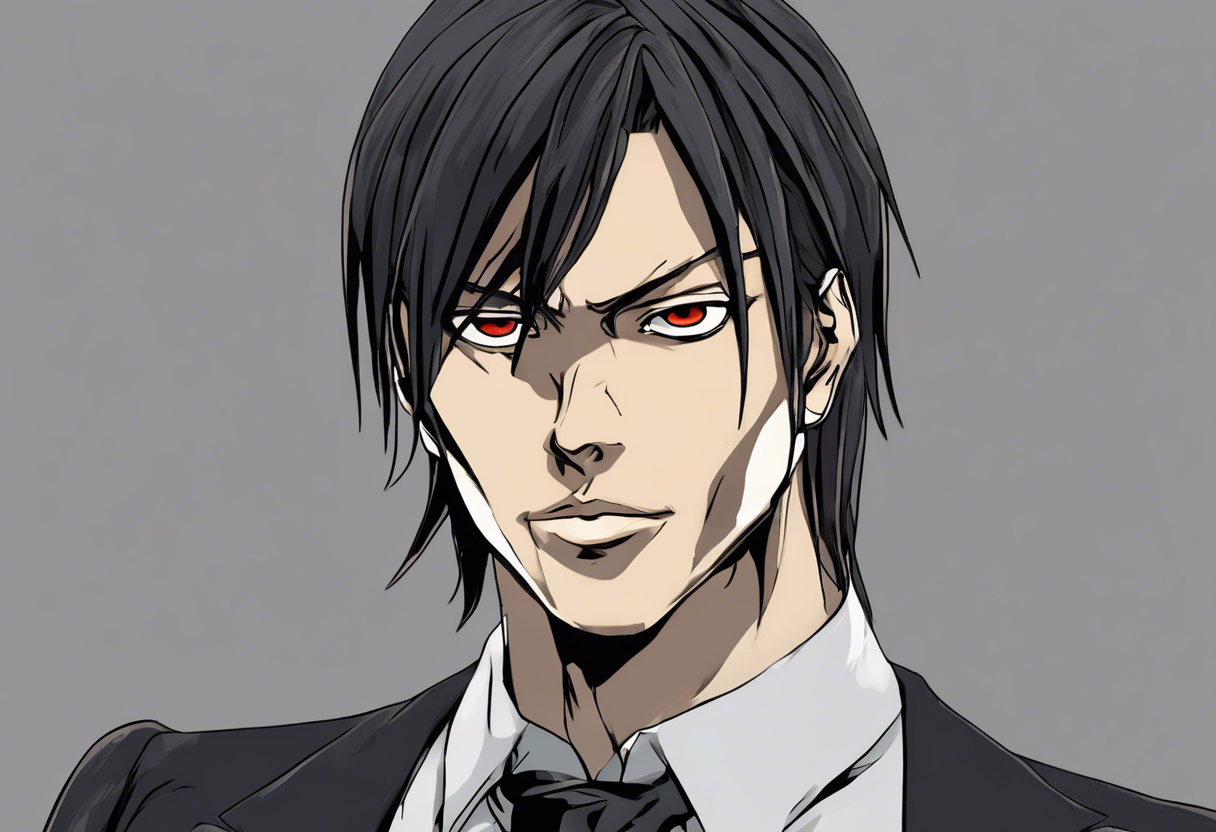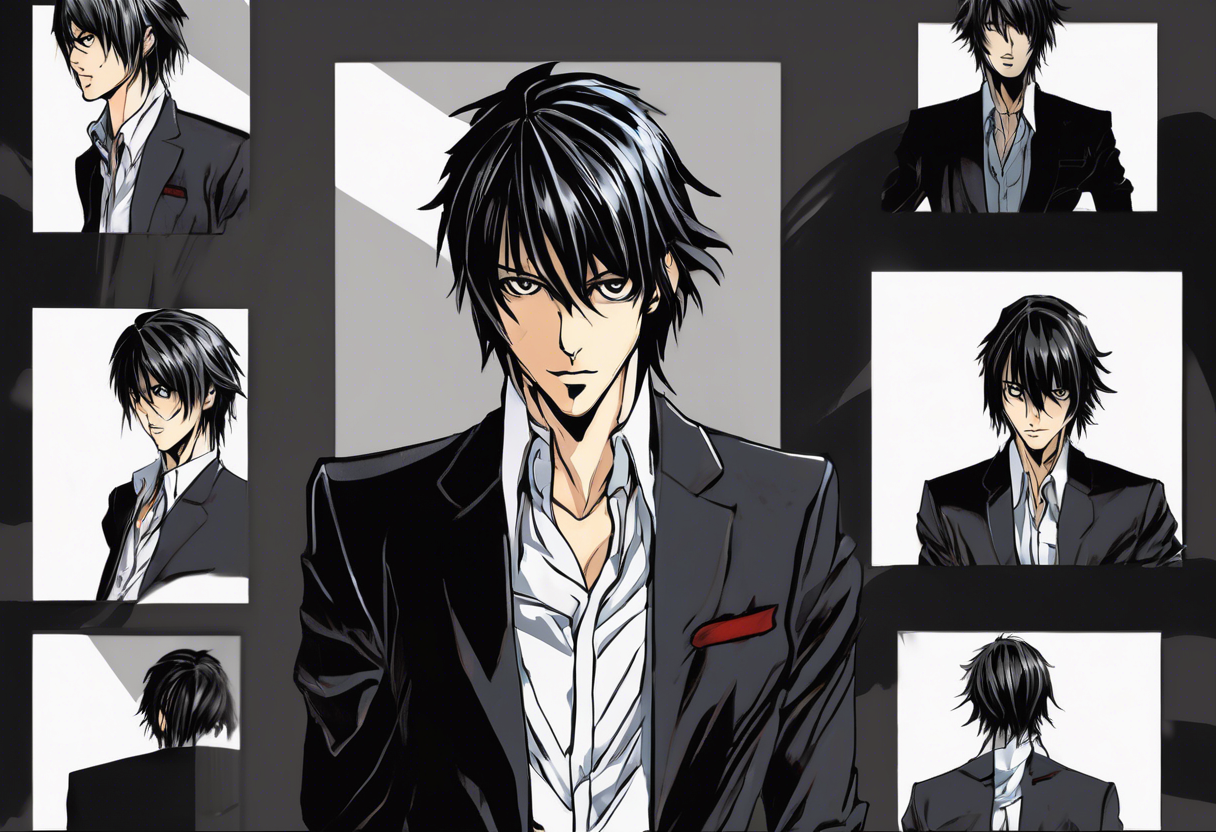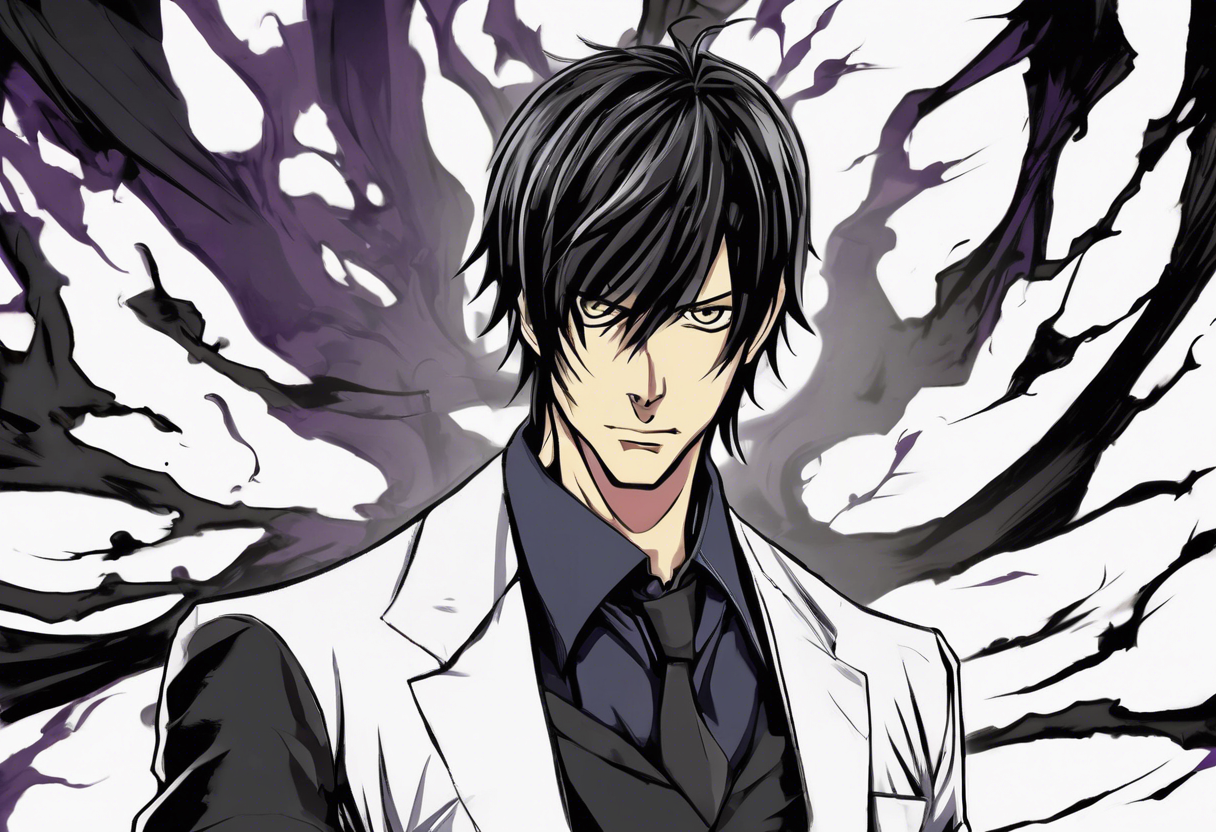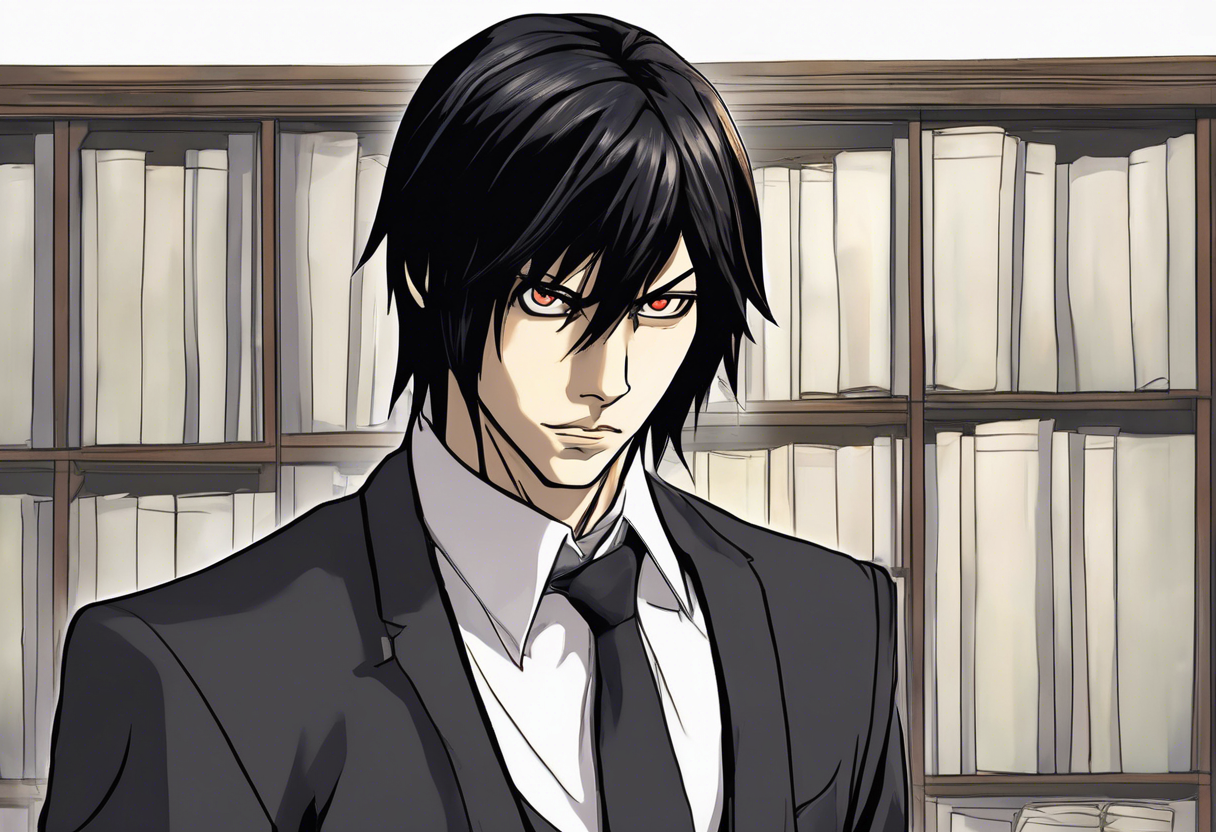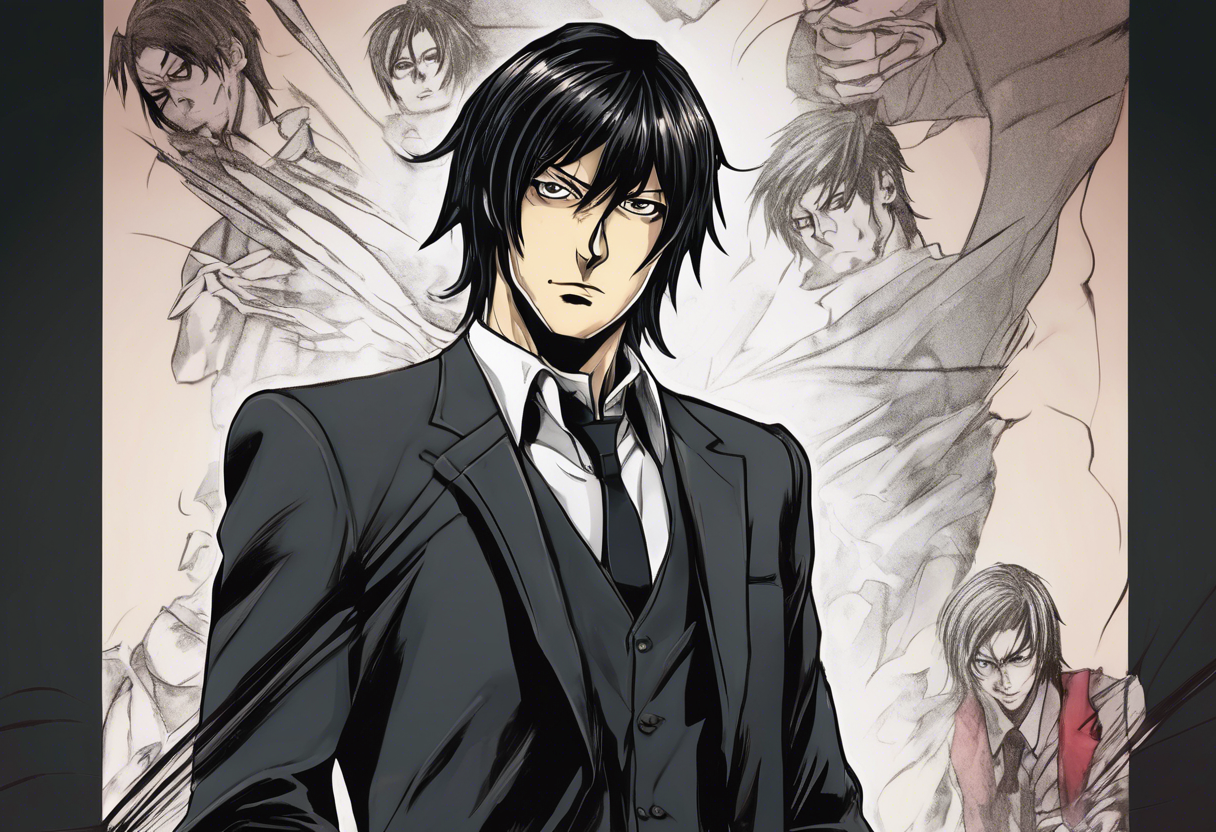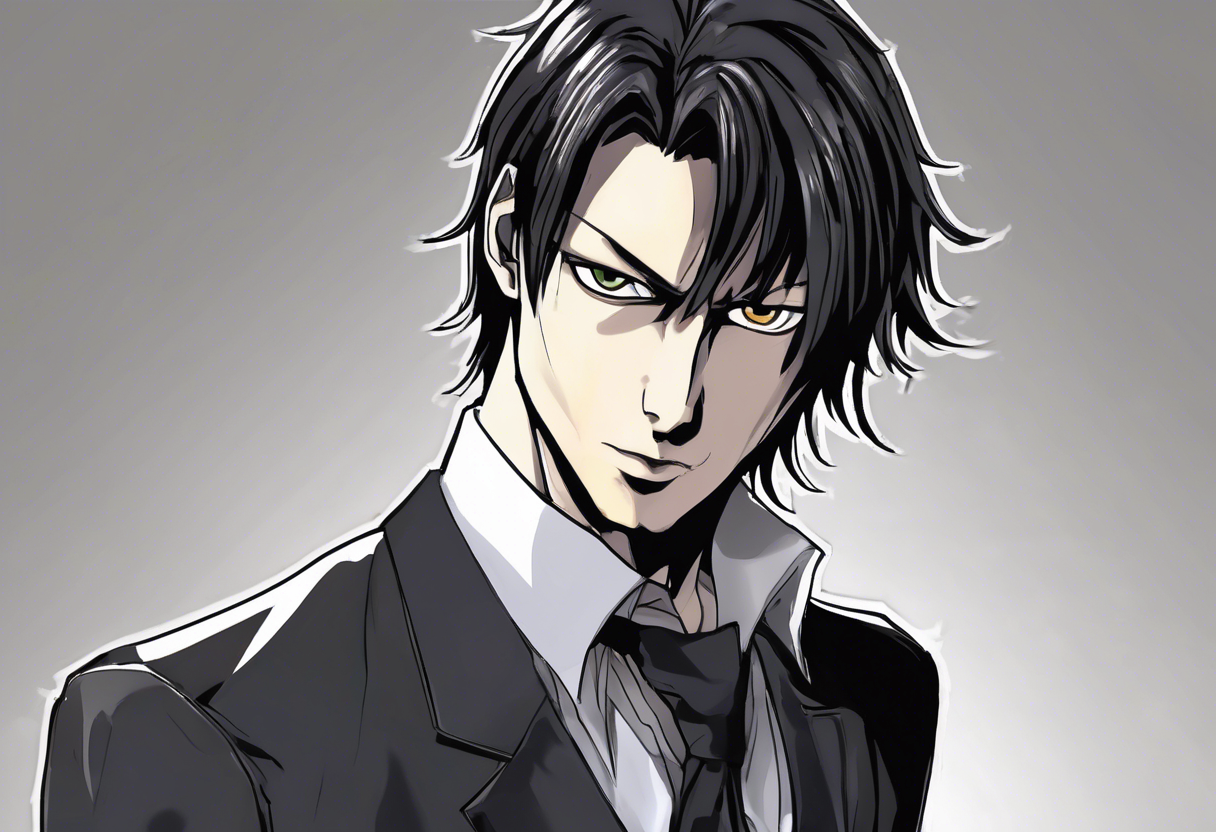Contents
Teru Mikami: A Deep Dive into the Complex Antagonist of Death Note
Introduction
Teru Mikami, a pivotal character in the acclaimed anime and manga series Death Note, is a creation of the renowned writer Tsugumi Ohba and illustrator Takeshi Obata. Introduced in the latter half of the series, Mikami is a criminal prosecutor who becomes an ardent and fanatical follower of Kira, the alias used by the main protagonist Light Yagami. Mikami’s character is defined by his unwavering dedication to justice, albeit a justice that is severely skewed and extreme.
Mikami’s backstory, marked by childhood trauma and a strong sense of justice, sets the stage for his complex and often disturbing actions throughout the series. His character serves as a reflection of the dangers of extremism and the illusion of absolute justice, adding depth and complexity to the narrative of Death Note.
Role in the Story
Teru Mikami enters the story as a prosecutor who shares Light Yagami’s views on justice and punishment for criminals. Mikami’s introduction is significant as he becomes the fourth Kira, chosen by Light to hide his identity and continue his mission of cleansing the world of crime [3].
Mikami’s journey is deeply intertwined with his obsession with Kira. He discovers the Death Note, an object that allows its owner to kill anyone whose name is written in it, and begins using it to execute those he deems evil. His methodical approach to killing, often muttering the word "delete" (削除, sakujo) as he writes names in the Death Note, highlights his rigid sense of morality and his willingness to go to extreme lengths to uphold it [1][3].
Mikami’s relationships with other characters are crucial to the plot. His blind loyalty to Light and his role as a proxy for Kira make him a key player in the climax of the series. However, his actions also lead to his downfall when he unintentionally implicates Light and exposes him as Kira to Near’s team [3].
Character Analysis
Teru Mikami’s personality is multifaceted and complex. He can be classified as an ESFJ (Extraverted-Sensing-Feeling-Judging) or potentially an ISTJ (Introverted-Sensing-Thinking-Judging) based on different analyses. The ESFJ type aligns with his strong sense of duty, loyalty, and adherence to rules, while the ISTJ type reflects his practical, detail-oriented, and disciplined nature [1].
Mikami is also identified as an Enneagram Type 1, known as The Perfectionist. This type is characterized by a strong sense of right and wrong, a rigid sense of morality, and a desire to be seen as a hero and savior. Mikami’s perfectionism drives his actions but also leads to his downfall as he becomes obsessed with his ideals and loses sight of reality [1].
Mikami’s motivations are rooted in his childhood experiences of being bullied and his subsequent desire to impose justice on those he considers evil. His backstory reveals a traumatic event where his mother and his tormentors were killed in an accident, which he interpreted as a divine judgment. This event solidified his belief in the necessity of eliminating evil from the world [5].
Despite his intelligence and dedication, Mikami’s flaws are evident in his extreme and warped sense of justice. He is willing to sacrifice his own life and the lives of others to achieve his goals, demonstrating a lack of empathy and a rigid adherence to his moral code. This rigidity makes him a compelling but also a tragic character, as his inability to adapt and question his beliefs ultimately leads to his downfall [1][4].
Themes and Symbolism
Teru Mikami embodies several key themes in Death Note, including the dangers of extremism, the illusion of absolute justice, and the consequences of blind loyalty. His character serves as a cautionary tale about the risks of following ideologies without critical thinking and questioning the status quo.
Mikami’s actions symbolize the darker aspects of human nature, particularly the tendency to justify violence and death in the name of justice. His use of the Death Note to "delete" evil people reflects a simplistic and dangerous view of morality, where complex issues are reduced to binary choices between good and evil [1][4].
The character also highlights the theme of the "god complex," where individuals believe they have the right to decide who lives and dies. Mikami’s worship of Kira as a god and his own self-appointed role as a judge and executioner underscore the dangers of unchecked power and the blurring of moral boundaries [3][4].
Cultural Impact
Teru Mikami has had a significant cultural impact since his introduction in the Death Note series. Fans of the anime and manga have been drawn to his complex and intriguing character, often debating his personality type and motivations online [1].
In adaptations and spin-offs, Mikami’s character has been portrayed consistently with his original depiction. His role in the anime and live-action films has reinforced his image as a fanatical and dedicated follower of Kira, contributing to the broader cultural understanding of the series’ themes and characters [3].
Mikami’s influence on popular culture extends beyond the Death Note series. He has inspired discussions about morality, justice, and the consequences of extreme ideologies. His character archetype has been referenced and analyzed in various contexts, including academic and critical analyses of anime and manga characters [1][4].
Critical Reception
Critics and audiences have had varied reactions to Teru Mikami’s character. Some praise his complexity and the depth he adds to the narrative, while others criticize his extreme actions and the moral ambiguities he represents.
Mikami’s portrayal as a perfectionist with a warped sense of justice has been both lauded and criticized. His character challenges viewers to question their own moral assumptions and the consequences of blind loyalty, making him a compelling and thought-provoking figure in the series [1][4].
However, some critics argue that Mikami’s character reinforces problematic stereotypes about justice and morality, particularly in his treatment of those he deems evil. This critique highlights the need for nuanced discussions about the themes and characters presented in Death Note [4].
Legacy
Teru Mikami’s enduring appeal lies in his complex and multifaceted character. He remains a significant figure in discussions about morality, justice, and the dangers of extremism. His influence can be seen in various works of fiction that explore similar themes and character archetypes.
Mikami’s relevance in contemporary discussions is evident in his continued analysis and debate among fans and scholars. His character serves as a reminder of the importance of critical thinking and the dangers of unchecked power and extreme ideologies.
In conclusion, Teru Mikami is a pivotal character in the Death Note series, offering a rich and complex exploration of justice, morality, and the human condition. His legacy continues to inspire and provoke, making him an integral part of the cultural and critical discourse surrounding the series.

